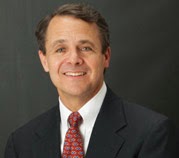The recent efforts by President-elect Donald Trump and Vice-President-elect Mike Pence against Carrier Corp. provide us with a signpost of the economic fascism that lies ahead after both men take office. Whatever might be said about economic fascism, one thing is for sure: it is contrary to the principles of economic liberty, private property, the free market, and the rule of law.
Targeting Carrier for daring to move some of its operations to Mexico, Pence, as governor of Indiana, offered the company a package of tax incentives to induce the company to keep some of its operations in Indiana. At the same time, Trump announced that as president he will punish any American company that moved abroad with the imposition of a high tariff on any goods it wished to ship into the United States.
That, my friends, is economic fascism in action. That’s precisely how Benito Mussolini, the democratically elected leader of Italy, operated in the 1930s — through edicts, decrees, and economic legislation directed at forcing or inducing private-sector businesses to behave as the political authorities wanted them to behave.
Under principles of economic liberty, private property, and the free market, people have the fundamental, God-given right to establish and move their business operations anywhere they want. That’s because it’s their business and their money, not society’s, not the government’s, and not the workers’.
What if American workers lose their jobs in the process? Then, they lose their jobs. No one has a right to a job with Carrier or with anyone else. If such a right existed, everyone could show up at everyone else’s door and demand, “Give me a job. I have a right to force you to employ me with your money.”
What do the terms “free market” or “free enterprise” mean? They mean markets or enterprises that are free of government control, regulation, and taxation.
That principle shocks some Americans. They’ve been taught that America’s economic system, which entails massive government regulation and taxation of businesses, is what a free-market system is all about. But it’s not. America has a regulated-economy or a controlled-economy system, not a free-market system. A free-market system is one where the government doesn’t regulate, control, or tax economic enterprise and, in the ideal case, is prohibited from doing so by the nation’s constitution.
Think of a free-religion system, which is the type we have here in the United States. Government is prohibited from controlling, regulating, and taxing religious activity. We call this a separation of church and state. Apply that principle to economic activity. That’s what is meant by free market and free enterprise—a separation of economy and the state, just as we separate religion and the state.
The Carrier episode raises another important point about a free society: the rule of law.
Some people, including many in the mainstream media, think that the term “the rule of law” means that people are supposed to obey the law.
Not so. It doesn’t meant that at all. What it means is that in a free society, people and businesses don’t have to concern themselves with edicts or decrees from political rulers. All they have to do is determine what the law holds and then act accordingly. Under the rule of law, people answer to the law, not to the orders of public officials.
The opposite type of system is based on what is called “the rule of men.” It’s a system in which the political authorities have the power to issue orders or offer inducements to people and businesses in order to get them to do what the rulers want them to do. In a system based on “the rule of men,” people and businesses live in constant fear or anxiety over what the rulers might do to them at any particular point in time.
As the libertarian economist Friedrich Hayek pointed out in his book The Constitution of Liberty, “the rule of law” is a necessary requisite to a free society, but clearly not a sufficient one.
For example, a set of clear, well-established drug laws would satisfy “the rule of law” principle, as compared to a system where the authorities just start rounding up people who are using drugs but where the legislature has not enacted any drug laws.
But as libertarians have long pointed out, drug laws, while they would satisfy “the rule of law” requirement for a free society, would nonetheless violate the principles of economic liberty and personal liberty.
The system of economic fascism is based on the principle of the “rule of men” and also violates the principles of private property and free-enterprise. That was perfectly exemplified in how Mussolini ran Italy, just as it was perfectly exemplified with Trump’s and Pence’s intervention against Carrier. The American people would be wise to prepare themselves for more economic fascism to come.
About the author: Jacob G. Hornberger is founder and president of The Future of Freedom Foundation.
This article was published by The Future of Freedom Foundation.
Subscribe to:
Post Comments (Atom)



No comments:
Post a Comment